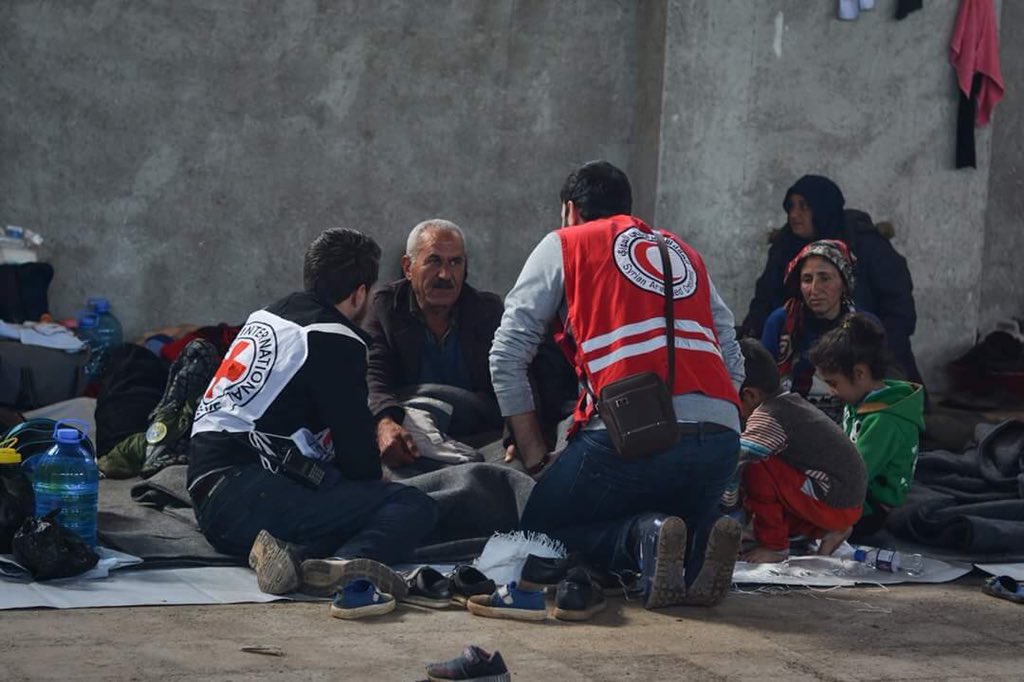The head of the international Red Cross called on Monday for access to civilians in the Kurdish-majority city of Afrin, warning Turkish aid workers lacked credibility after Ankara-led forces took the Syrian city.
In a major victory for Turkey’s two-month operation against the Kurdish People’s Protection Units (YPG) in northern Syria, Turkish-led forces pushed into Afrin Sunday apparently unopposed, taking up positions across the city.
Peter Maurer, President of the International Committee of the Red Cross, stressed the need to help those remaining in the city, warning that accessing Afrin had already been difficult before the latest developments.
“Now with the combat operation we have a big number of people displaced,” he told journalists in Geneva after a two-week trip to the Middle East, including war-ravaged Syria.
“We will have to find the best way possible to reach this population over the next couple of days and weeks,” he said, adding: “I hope this is possible.”
While fighting rages in #EasternGhouta, tens of thousands of people are suffering in #Afrin.
Desperate and terrified, thousands are fleeing every day with no place to stay, little food, water and medical care. pic.twitter.com/SVU7B6pGBG
— ICRC Syria (@ICRC_sy) March 19, 2018
While advocating for access, Maurer acknowledged that the national Turkish Red Crescent society, which would be best placed to go in, would have difficulty working with Kurdish civilians following the Turkish-led military operations.
“The credibility of a Turkish Red Crescent working in Afrin with the Kurdish population is close to zero,” he said, stressing the need for the ICRC itself to go into the city.
Mr. Maurer said any humanitarian operation to Afrin would be difficult.
“This is a very fluid situation,” he said, pointing out that “we don’t know who stayed in Afrin.”
“This will be a very complex and complicated situation for those who remain in Afrin and it will be difficult for those who are displaced and who at the present moment are not yet in a very stable situation where we can deliver humanitarian assistance,” he added.
Around 250,000 civilians have left in recent days after pro-Ankara fighters took the surrounding region and all but encircled the city, fleeing southwards to territory still held by the YPG or controlled by the Syrian regime.
Mr. Maurer also spoke of the situation in Syria’s other main flashpoint at the moment, the rebel enclave of Eastern Ghouta near Damascus.
He stressed the important role played by Russia, Syrian President Bashar al-Assad’s main ally, in ensuring evacuations from the besieged enclave.
“There is no question that the Russians play a very important role in bringing the belligerents on both sides of the frontline together and to a create safe space and environment in which safe evacuations can take place,” he said. “This is appreciated.”
Syria’s conflict, which started seven years ago this month when President Bashar Assad‘s forces cracked down on peaceful protests demanding regime change, has killed at least 350,000 people and displaced more than half of the pre-war population of 20 million.




Comments are closed.